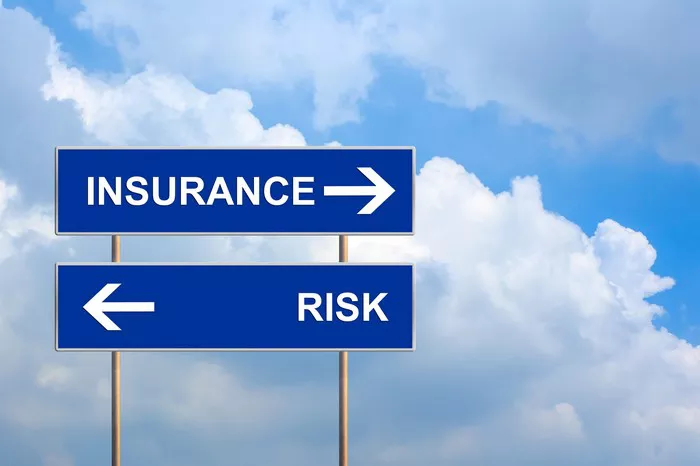In today’s complex professional landscape, many individuals and businesses operate under various risks that could lead to legal repercussions. Whether you are a healthcare provider, a consultant, a lawyer, or an architect, the potential for professional liability claims is an ever-present reality. Understanding when professional liability insurance becomes crucial is essential for anyone engaged in a profession that involves providing advice, services, or expertise. This article delves into the importance of professional liability insurance, examining its significance across various professions, the types of coverage available, and scenarios where it can make a substantial difference.
What Is Professional Liability Insurance?
Definition
Professional liability insurance, often referred to as malpractice insurance in the healthcare field, protects professionals against claims of negligence, errors, and omissions in the performance of their duties. This insurance covers legal costs, settlements, and judgments arising from claims made by clients or patients alleging that the professional failed to provide the expected standard of care or service.
Key Features
Coverage for Legal Fees: Covers the cost of defending against claims, including attorney fees and court costs.
Compensation for Settlements: Provides funds to pay for settlements or judgments if the professional is found liable.
Variety of Professions: Available for a wide range of professionals, including healthcare providers, lawyers, accountants, consultants, and more.
Why Is Professional Liability Insurance Important?
Professional liability insurance is vital for various reasons, particularly in professions where the risk of claims is higher. Here are some key points highlighting its importance:
Protection Against Legal Claims
The primary function of professional liability insurance is to shield professionals from legal claims. Even the most skilled and careful professionals can face allegations of negligence or malpractice. Having insurance means you can defend yourself without incurring crippling legal costs.
Reputation Management
A claim against a professional can severely damage their reputation. Professional liability insurance not only provides financial support but also helps manage the crisis. Insurance providers often assist in public relations and reputation management strategies to mitigate the impact of a claim.
Contractual Requirements
Many businesses require professionals to carry liability insurance as a condition of employment or contract. For example, consultants may need proof of insurance before securing contracts with clients, and healthcare providers must often show proof of coverage to practice at certain facilities.
See Also: Who Pays for Workers’ Compensation? A Comprehensive Guide
Peace of Mind
Knowing that you have professional liability insurance in place can provide peace of mind, allowing you to focus on your work without the constant fear of potential lawsuits. This security can improve job performance and professional satisfaction.
Rising Litigation Trends
Litigation has become increasingly common in various industries. The prevalence of lawsuits means professionals are more vulnerable to claims, making insurance more critical than ever. For instance, the healthcare industry faces numerous malpractice suits annually, making liability insurance essential for nurses, doctors, and other healthcare workers.
When Is Professional Liability Insurance Crucial?
Understanding when professional liability insurance is necessary can help individuals and businesses make informed decisions about their coverage. Here are key scenarios in which having this insurance is particularly important:
Direct Client Interactions
Professionals who engage directly with clients or patients are at a higher risk for claims. For example:
Healthcare Providers: Doctors and nurses can face malpractice suits if a patient claims inadequate care or negligence.
Consultants: Business consultants may be sued for errors or omissions in their advice, leading to financial loss for their clients.
High-Risk Professions
Certain professions are inherently riskier than others and require robust professional liability coverage. These include:
Lawyers: Legal professionals may face claims of negligence for failing to represent a client adequately or missing critical deadlines.
Architects and Engineers: Design professionals are at risk of claims related to design flaws, leading to costly construction errors.
Evolving Professional Standards
As industries evolve, so do the standards of care and service.
Professionals who do not keep up with these changes may find themselves exposed to claims. For instance, therapists and counselors must stay updated on best practices and regulations, as failing to do so could result in lawsuits.
Freelancers and Independent Contractors
Freelancers and independent contractors face unique risks since they often work without the support of an employer’s insurance policy. Professional liability insurance is crucial for:
Freelance Writers: A client may allege that a piece of content caused reputational damage or did not meet contractual obligations.
Independent Consultants: Claims can arise from perceived failures in delivering agreed-upon services.
Part-Time or Moonlighting Professionals
Many professionals work part-time or take on side gigs in addition to their primary employment. While their employer may provide coverage for their primary role, they may not be protected during their side work. For example, a nurse working as a part-time health coach may need separate liability insurance to cover that aspect of their work.
Types of Professional Liability Insurance
Understanding the different types of professional liability insurance is essential for selecting the right coverage. Here are the main types:
Claims-Made Policies
Claims-made policies provide coverage for claims made during the policy period. If a claim is made after the policy expires, the policyholder must have tail coverage to ensure protection.
Pros:
Often less expensive than occurrence policies.
Provides coverage as long as the policy is active.
Cons:
Requires careful management of coverage periods.
Occurrence Policies
Occurrence policies cover incidents that occur during the policy period, regardless of when the claim is made. This type of coverage is often more comprehensive.
Pros:
Long-term protection, even after the policy expires.
No need for tail coverage.
Cons:
Generally more expensive than claims-made policies.
Specific Professional Liability Insurance
Certain professions may require specialized coverage tailored to their unique risks. Examples include:
Medical Malpractice Insurance: Specifically for healthcare providers.
Legal Malpractice Insurance: Designed for lawyers and legal professionals.
General Liability Insurance
While not a substitute for professional liability insurance, general liability insurance covers broader risks such as bodily injury, property damage, and advertising injury. Some professionals may benefit from having both policies.
How to Choose the Right Professional Liability Insurance
Choosing the right professional liability insurance involves
assessing your needs, comparing options, and understanding the fine print. Here are steps to consider:
Assess Your Risk Exposure
Consider the nature of your work, the potential risks involved, and the likelihood of claims. High-risk professions should prioritize obtaining comprehensive coverage.
Research Insurers
Look for insurance providers with a strong reputation and financial stability. Review customer testimonials and ratings to ensure they handle claims efficiently.
Compare Policies
Request quotes from multiple insurers and compare the coverage, limits, exclusions, and costs. Don’t just focus on premiums; consider the overall value and benefits offered.
Read the Fine Print
Thoroughly review the policy details, including exclusions and conditions. Understanding the terms will help you avoid surprises during a claim.
Consult a Professional
If you’re unsure about the best coverage for your needs, consider consulting an insurance broker or agent who specializes in professional liability insurance.
Conclusion
Professional liability insurance is a vital aspect of risk management for many professionals across various industries. Understanding when this insurance is necessary and recognizing its importance can safeguard your career and finances. By evaluating your profession’s specific risks and needs, researching reputable providers, and selecting the appropriate coverage, you can ensure you are adequately protected against the uncertainties of professional life. Whether you are a seasoned professional or just starting, investing in professional liability insurance is an essential step in managing your career’s risks effectively.
You Might Be Interested In
Is Workers’ Compensation Mandatory in All States?






















